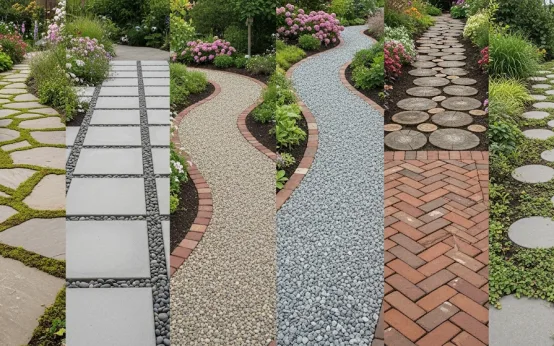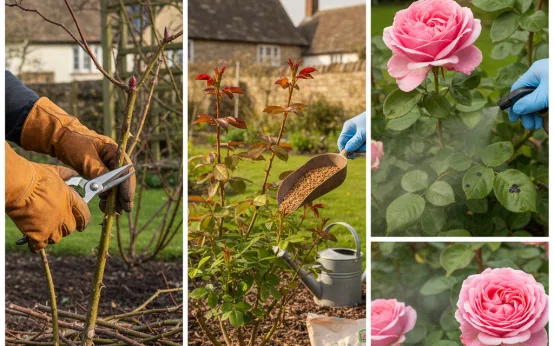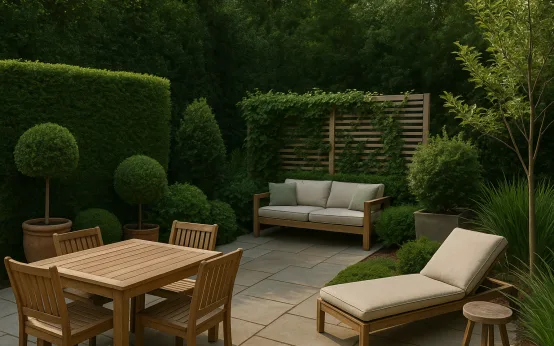
Composting is one of the simplest and most effective ways to recycle waste, improve soil health, and reduce your environmental footprint. For UK gardeners, it transforms everyday kitchen scraps and garden clippings into nutrient-rich material that boosts plant growth naturally. Whether you have a large garden or a small urban courtyard, composting is accessible, affordable, and rewarding.
For beginners, the process may seem mysterious at first — piles of organic matter somehow turning into rich, dark soil conditioner. In reality, composting is straightforward once you understand the basics. By learning what to include, how to maintain balance, and how to use the finished compost, you can create a sustainable cycle that benefits both your garden and the planet.
Why Composting Matters
Composting is about much more than reducing waste. In the UK, millions of tonnes of food scraps and garden clippings end up in landfill each year, where they release methane, a potent greenhouse gas. By composting at home, you cut down on this waste while producing a free resource that replaces synthetic fertilisers.
The benefits of composting include:
- Soil enrichment: Compost improves soil structure, aeration, and water retention.
- Nutrient supply: It adds slow-release nitrogen, phosphorus, and potassium.
- Microbial activity: Encourages beneficial organisms that keep soil healthy.
- Sustainability: Reduces reliance on peat-based composts and chemical fertilisers.
- Cost savings: Provides a steady supply of free, natural soil improver.
For gardeners, composting closes the loop: what is taken from the garden in the form of weeds, prunings, or vegetable peelings is returned as nourishment for future growth.
The Basics of Building a Compost Heap
A good compost heap relies on the right balance of materials, moisture, and airflow. Organic matter is broadly divided into two categories:
- Greens: Nitrogen-rich materials like grass clippings, fruit and vegetable peelings, coffee grounds, and fresh plant cuttings.
- Browns: Carbon-rich materials like dried leaves, cardboard, straw, wood chips, and shredded paper.
For best results, aim for a mix of roughly two parts browns to one part greens. Too many greens make compost wet and smelly; too many browns slow down decomposition.
To start composting:
- Choose a bin or heap: Compost bins are ideal for small gardens, keeping the pile tidy and retaining heat. Open heaps work in larger spaces.
- Add layers: Alternate between greens and browns, breaking up larger items for faster decomposition.
- Maintain moisture: The heap should be as damp as a wrung-out sponge. Add water in dry spells or extra browns if it is too wet.
- Turn regularly: Mixing the heap every few weeks introduces oxygen, speeding up the process and reducing odours.
- Be patient: Composting takes time — from a few months in summer to over a year in cooler conditions.
By following these simple steps, beginners can set up a system that works efficiently and produces usable compost without fuss.
What to Compost — and What to Avoid
Knowing what to add is essential. Most organic matter is suitable, but some items cause problems by attracting pests or spreading disease.
What to compost:
- Vegetable and fruit peelings
- Grass clippings and weeds (before they set seed)
- Coffee grounds and tea bags (plastic-free varieties)
- Eggshells, crushed for faster breakdown
- Cardboard, shredded paper, and autumn leaves
What to avoid:
- Meat, dairy, and cooked food (these attract vermin)
- Diseased plants (risk spreading pathogens)
- Pet waste (may contain harmful bacteria)
- Glossy paper or chemically treated wood
Sticking to the right ingredients ensures your compost is safe, effective, and pleasant to manage. If you are ever unsure, ask yourself whether the item is natural, untreated, and plant-based — if so, it is usually fine.
Using Compost in Your Garden
Finished compost is dark, crumbly, and smells earthy. It can be used in several ways to boost soil and plant health:
- Soil improver: Dig into beds and borders to enrich structure and fertility.
- Mulch: Spread around plants to suppress weeds, conserve moisture, and add nutrients slowly.
- Potting mix ingredient: Combine with soil, sand, and leaf mould for homemade potting compost.
- Top dressing: Apply to lawns in thin layers to improve soil health beneath grass.
- Vegetable plots: Mix into beds before sowing or planting to provide a nutrient boost.
Compost is not a complete fertiliser, but it improves overall soil health and reduces the need for synthetic feeds. Over time, gardens fed with compost become more resilient, retaining water better in dry spells and draining more effectively in wet conditions — a real advantage in the UK’s unpredictable climate.

 Creating Garden Paths: Materials and Design Ideas
Creating Garden Paths: Materials and Design Ideas  Rose Garden Care: Pruning, Fertilizing, and Disease Prevention
Rose Garden Care: Pruning, Fertilizing, and Disease Prevention  Creating Outdoor Room Divisions with Plants
Creating Outdoor Room Divisions with Plants